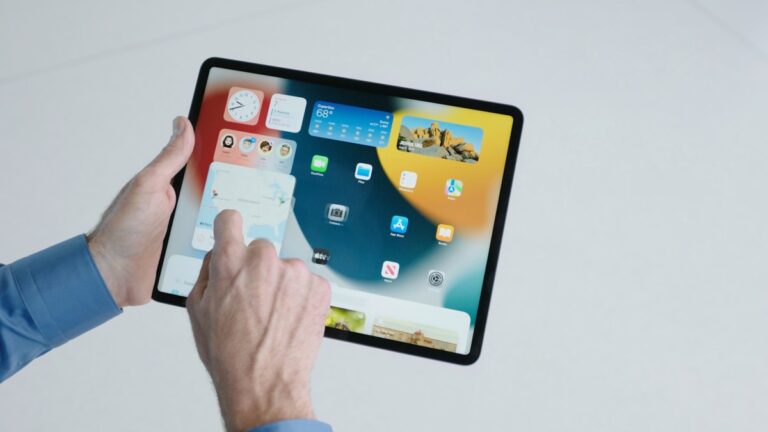European Union will apply its flagship market fairness and contestability rules to Apple’s iPadOS, Commission says announcement today – increasing the number of Apple-owned platforms regulated by the Digital Markets Act (DMA) to four and increasing regulatory risk for the tech giant by expanding its tablet ecosystem.
Apple has six months to ensure iPadOS complies with the DMA.
This development could force significant changes to how Apple operates the tablet platform in the EU, as Apple will need to ensure it complies with a series of DMA mandates, such as the ban on smartphones. -called “guardians” to be able to choose their own preferences. services and requirements to allow third-party app stores, side-loading of apps, and support for third-party payment options.
Apple will also have to open access to non-WebKit versions of Safari on iPadOS in the next six months, as has already been done on iOS as part of another DMA compliance step. While business users who reach customers through the tablet platform will be legally entitled to FRAND (fair, reasonable and non-discriminatory) terms.
Last fall The Commission has designated Apple’s mobile platform iOS, the App Store and the Safari browser as subject to all of the initial ‘dos and don’ts’ of the DMA – the regime providing for tough penalties for any violation (up to 10% of global annual turnover, or even more in the event of a repeat offense).
Since then, Apple has announced a series of changes to the way it operates platforms in the region. But aspects of its response to the DMA are already under formal investigation for alleged non-compliance. The Commission has opened a first wave of formal DMA investigations last month.
Apple’s tablet operating system was not included in the EU’s first DMA designations last year because the number of users did not meet the threshold. However, the regulation gives the Commission room to also examine qualitative criteria, where tech giants have a well-established and sustainable position. This is what happened here.
Announcing the results of its market investigation, the Commission said it found that professional iPadOS users exceeded the threshold by eleven times, while the number of end users was “close” to the threshold and expected to increase in the future. close.
Its survey also found that end and business users are “forced” to use iPadOS. “Apple leverages its large ecosystem to discourage end users from switching to other tablet operating systems,” he writes. “Pro users are stuck with iPadOS because of its large and commercially attractive user base, and its importance for certain use cases, such as gaming apps. »
“(D)although it does not meet the quantitative thresholds set in the DMA, (iPadOS) provides an important gateway for business users to reach end users and should therefore be designated as a gatekeeper,” added the Commission.
Apple responded to the iPadOS designation with an emailed statement. “We will continue to work constructively with the European Commission to comply with the DMA, across all designated services. Our focus will remain on providing the best products and services to our European customers, while mitigating the new privacy and data security risks that DMA poses to our users,” the company wrote.
The Commission had given itself 12 months to carry out the market study on iPadOS. Assuming that it launched the review right after the first DMA designations were announced, it took the EU approximately eight months to conclude this qualitative review of the tablet platform. The Commission has confirmed that this is the first and so far only market investigation undertaken since the creation of the DMA.
In a previous decision, back in FebruaryThe EU decided not to designate Apple’s iMessage as subject to the DMA, meaning the company avoided the requirement to make its messaging system interoperable.


